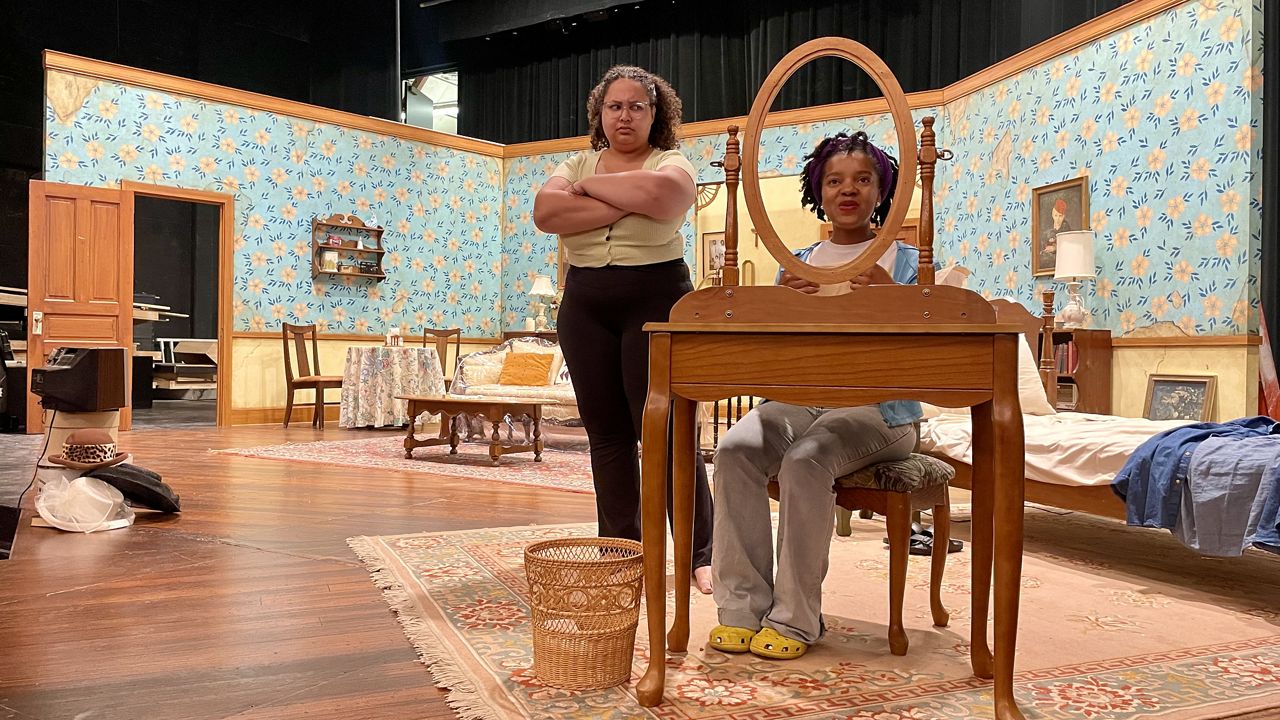MILWAUKEE — When Ashley Jordan steps into her role as Elsie, she’s reminded of her roots.
Growing up in Milwaukee’s Amani neighborhood, Jordan said she is no stranger to adversity.
“I grew up on 28th and Locust, one of the roughest zip codes in Wisconsin, in Milwaukee, Wisconsin. And so, that’s always been my goal to persevere and conquer against any and all adversities,” said Jordan.
Her character, Elsie, has to persevere too — though she’s doing it by trying to land a man named Edmund.
It’s all part of the play, “Mud Row,” which tells a story of conflict between two generations of sisters in the East End of West Chester, Penn.
The play takes place across two timelines. In one, Elsie and her sister Frances are navigating a pre-Civil Rights world. In the present day are estranged sisters Regine and Toshi, Elsie’s grandchildren; they’re reckoning with their heritage after Regine inherits her grandmother Elsie’s house.
“This is a play about a family in conflict with itself and that spills out into manifesting itself in conflict with the community and with the past,” said “Mud Row” director and Artistic Consultant for Black Arts MKE Marti Gobel.
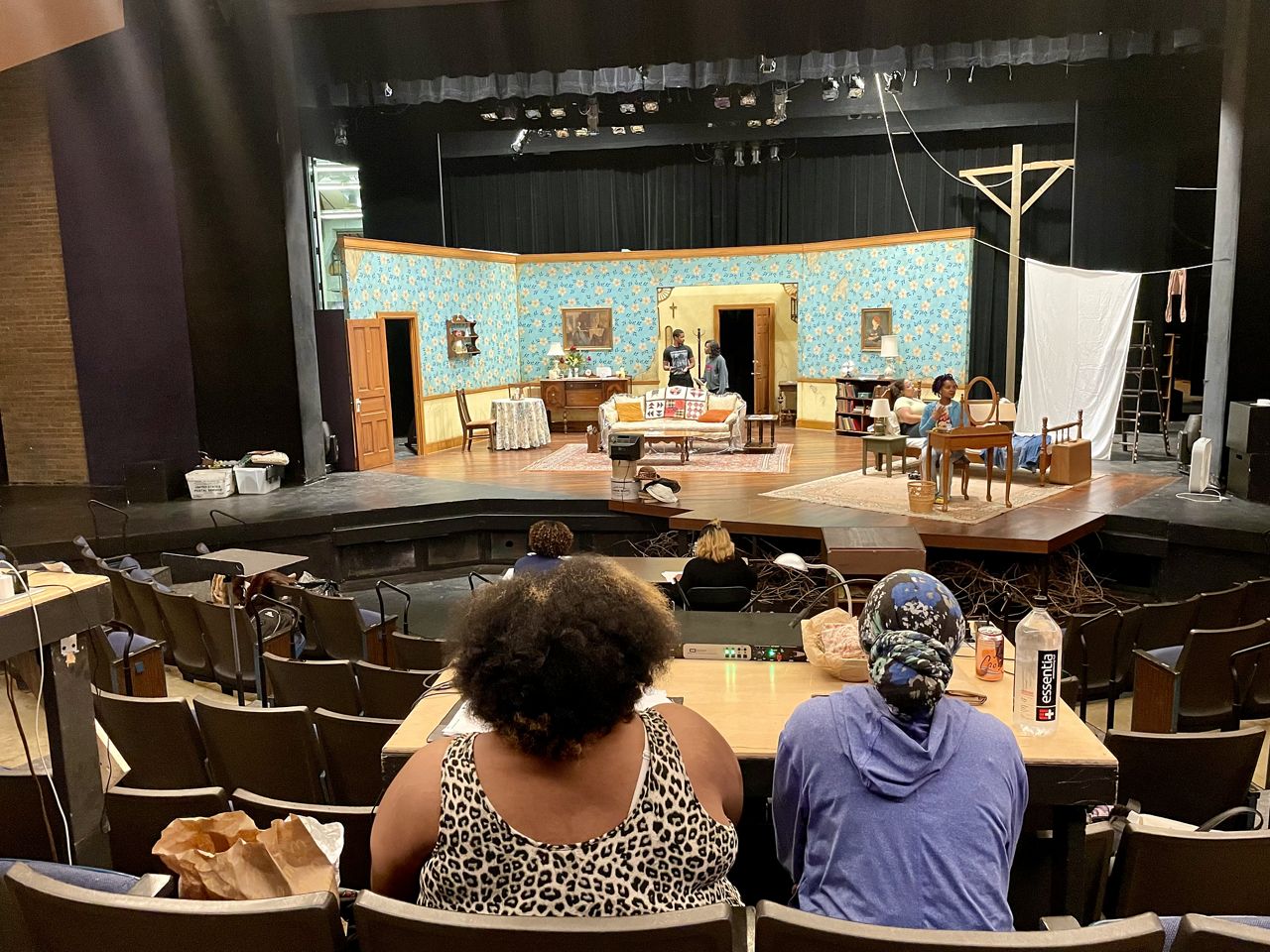
The story is one Jordan said everyone can relate to, not just for its themes of conflict in the family, but also for some of its deeper threads, like depression, drug addiction, homelessness and gentrification.
Gobel explained another theme audiences will see throughout is the divide in the African American community between the Talented Tenth and the grassroots movement. The Talented Tenth was a leadership class of African Americans in the early 20th century that were expected to lift up others in the Black community. It was primarily associated with author and activist W.E.B Du Bois.
This can be seen in the play through Elsie’s character, who is aspiring to move up in the world by marrying into this group. Her sister Frances, on the other hand, falls more within the grassroots movement as she advocates for civil rights in town.
Flash forward to the current day and you see a broken dynamic between Elsie’s granddaughters, Regine and Toshi. Toshi has been dealing with addiction; Regine is having trouble embracing her heritage.
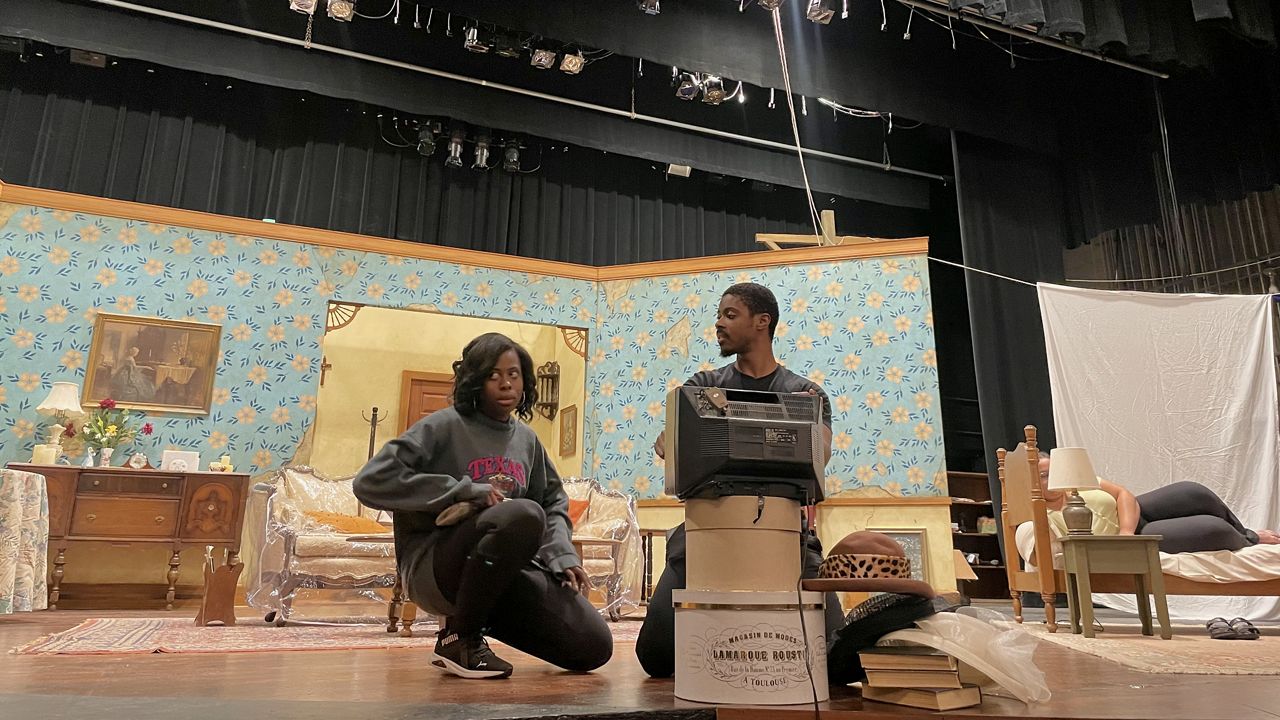
In the end, both characters reconcile.
“This is that reminder it’s never too late to forgive the people in your life,” said Jordan.
It’s a message Gobel said she hopes audiences take away with them after seeing the show.
“Sometimes families and family members hold on to things that aren’t really that big a deal,” said Gobel. “And if you could just hit a reset, it not only repairs, for instance, in the case of this show, sister-to-sister, but it may be in others’ families, that sister may be a niece or an aunt or a sister-in-law, so it’s not just that one nuclear relationship — it’s how it spills out into the health of the entire family.”
Not only does the show deal with mending bonds between loved ones. It also reckons with the acceptance of ancestry.
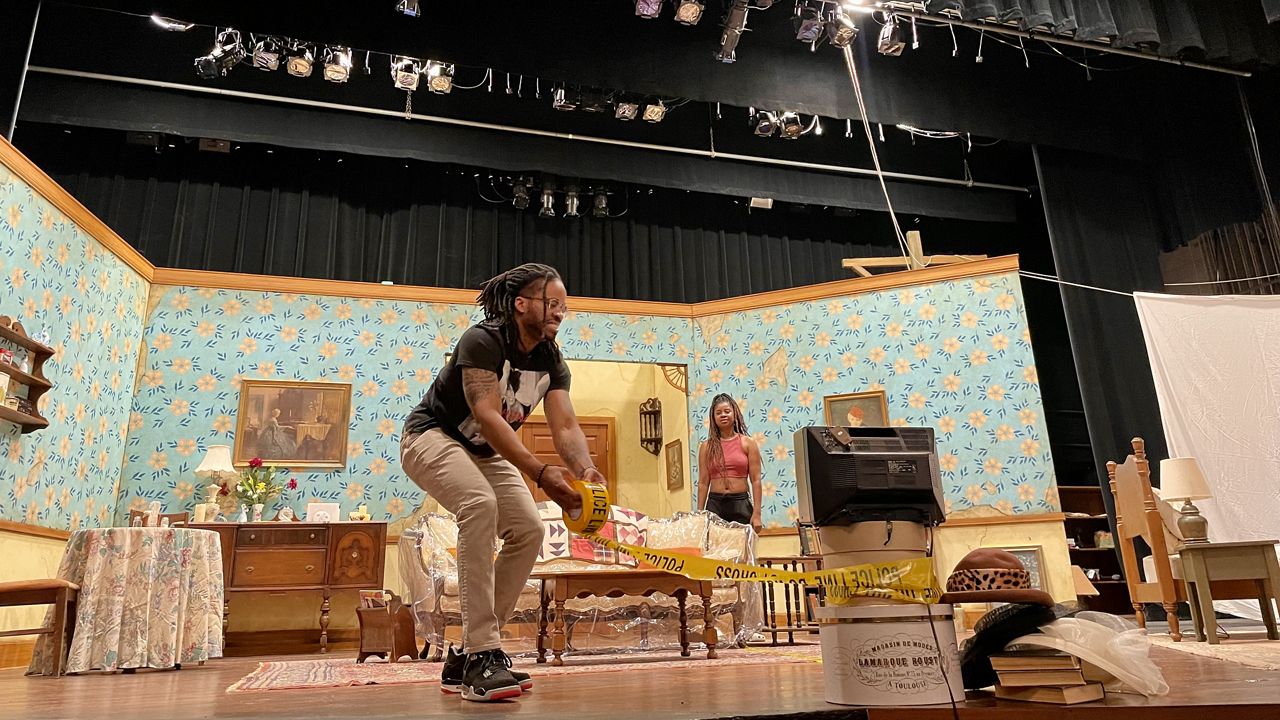
As an actor, Jordan said it’s something she can relate to. Raised by her grandmother, who has since passed away, Jordan said at certain moments, she can still feel her presence.
“I feel her spirit and I feel her energy, and that’s a real thing. Even after our loved ones have passed on, they’re still with us. They’re still inside of us. What they gave us, those memories are still real,” Jordan said. “So, I just think it’s (the play) a great reminder of all of that.”
Behind the scenes, Gobel and Jordan said it’s been rewarding to be around other artists of the color in this production.
“It’s very rare that I’m in a room with all brown-skinned people — and that is very rewarding to me,” said Gobel.
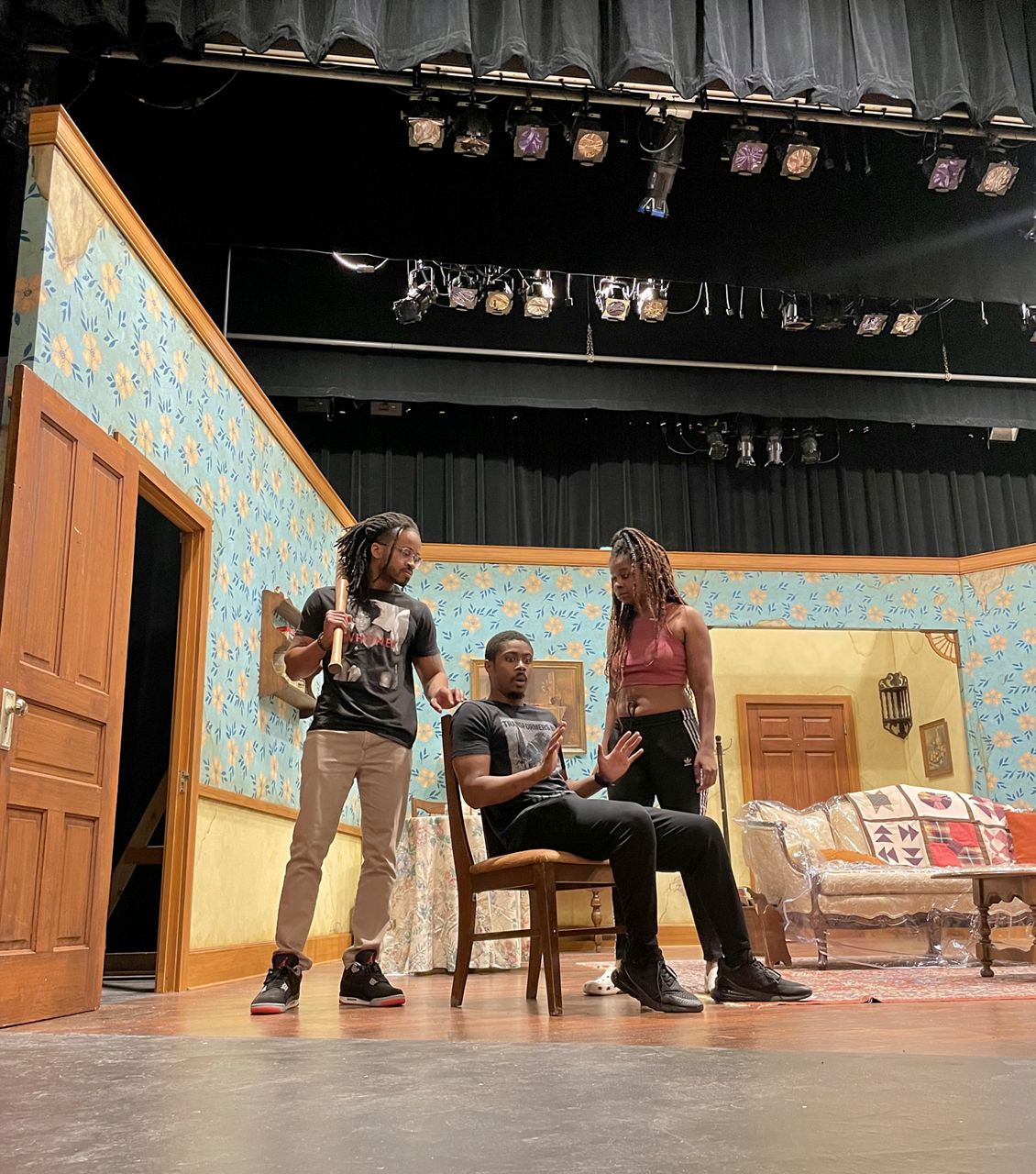
“Mud Row” is part of MKE Black Theatre Festival, which is put on by the organization Black Arts MKE as a way to support and uplift Black creatives in the city.
“This is something that’s necessary because we don’t see it a lot. A lot of artists of color have had to leave because it’s just not enough work to sustain or feed their family,” said Jordan. “It’s a beautiful thing to be in this space.”
Gobel said representation in the arts is crucial.
“Theatre is the very reflection of society and if you go to the theater and you don’t see yourself reflected, then we have a problem,” she said.
That’s a big reason why placing this production of “Mud Row” in the programming of MKE Black Theatre Festival is important. Jordan said one of the other actors in the festival’s two shows didn’t know theater was a major until his second or third year of college.
“We have to make it (theatre) visible because if we don’t move, those stories will keep happening. And we can’t keep going on like that,” said Jordan.
Jordan, who is also the director of arts and cultural programming for Black Arts MKE, said the work they do through the organization is confirming the importance of youth exposure across all of their events in the city.
“It’s been amazing because… last year for Black Nativity, we had eight youth performers, which is the biggest that we’ve ever had for a youth cast,” said Jordan. “All of those things have really just confirmed what is necessary in making sure that we continue to push this forward because if we don’t, then who?”
The festival serves as one of those pushes forward.
“It’s a great place for African American or Black people to come in and see themselves reflected on stage and similarly, a safe space for all others to see how we speak and how we are,” said Gobel.
MKE Black Theatre Festival takes place Aug. 9-27. Performances of “Mud Row” run from Aug. 10-13, 17-20 and 24-27. Tickets start at $20 and can be purchased here. The play is being hosted at Marquette University’s Evan P. & Marion Helfaer Theatre as a collaboration with Black Arts MKE.



